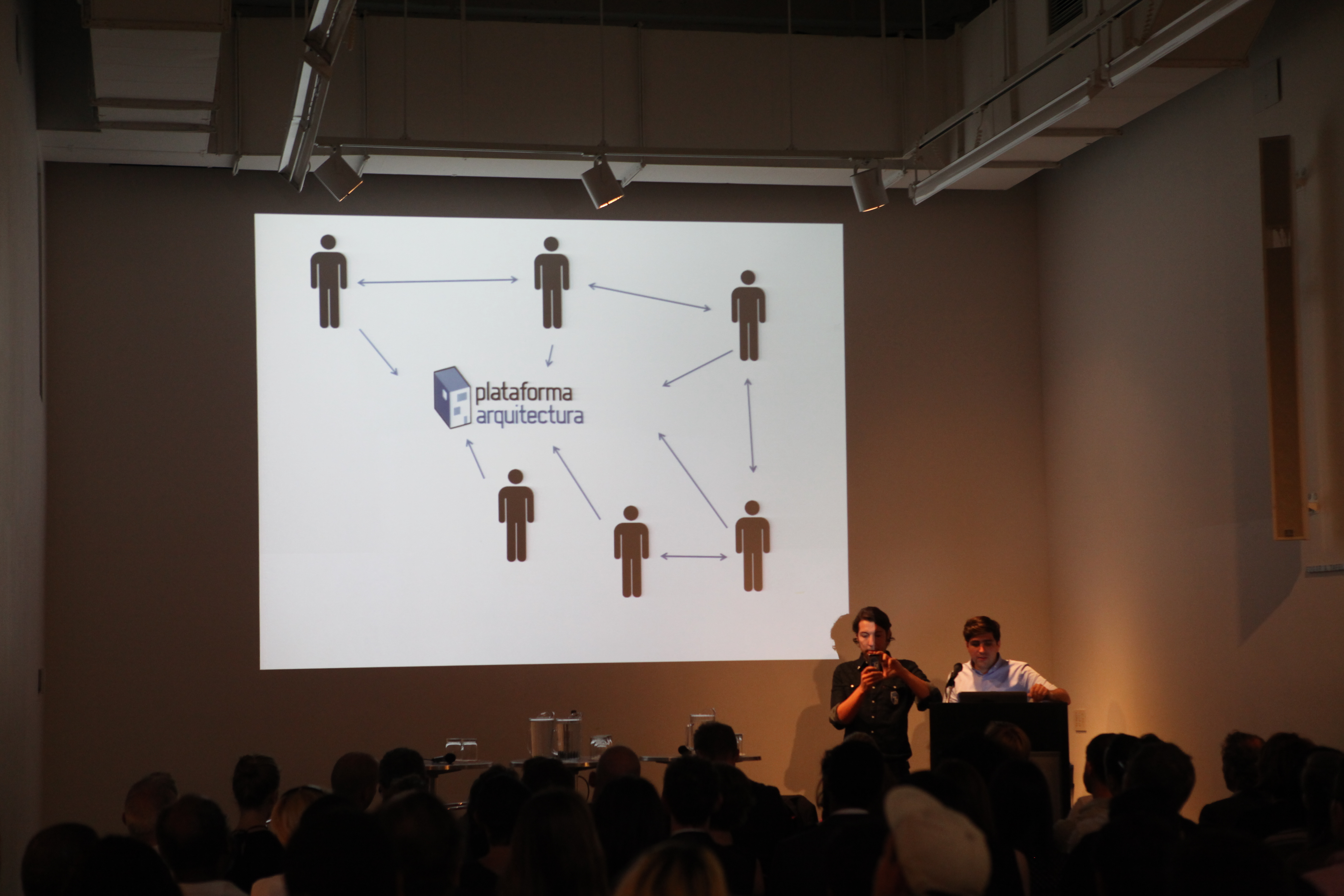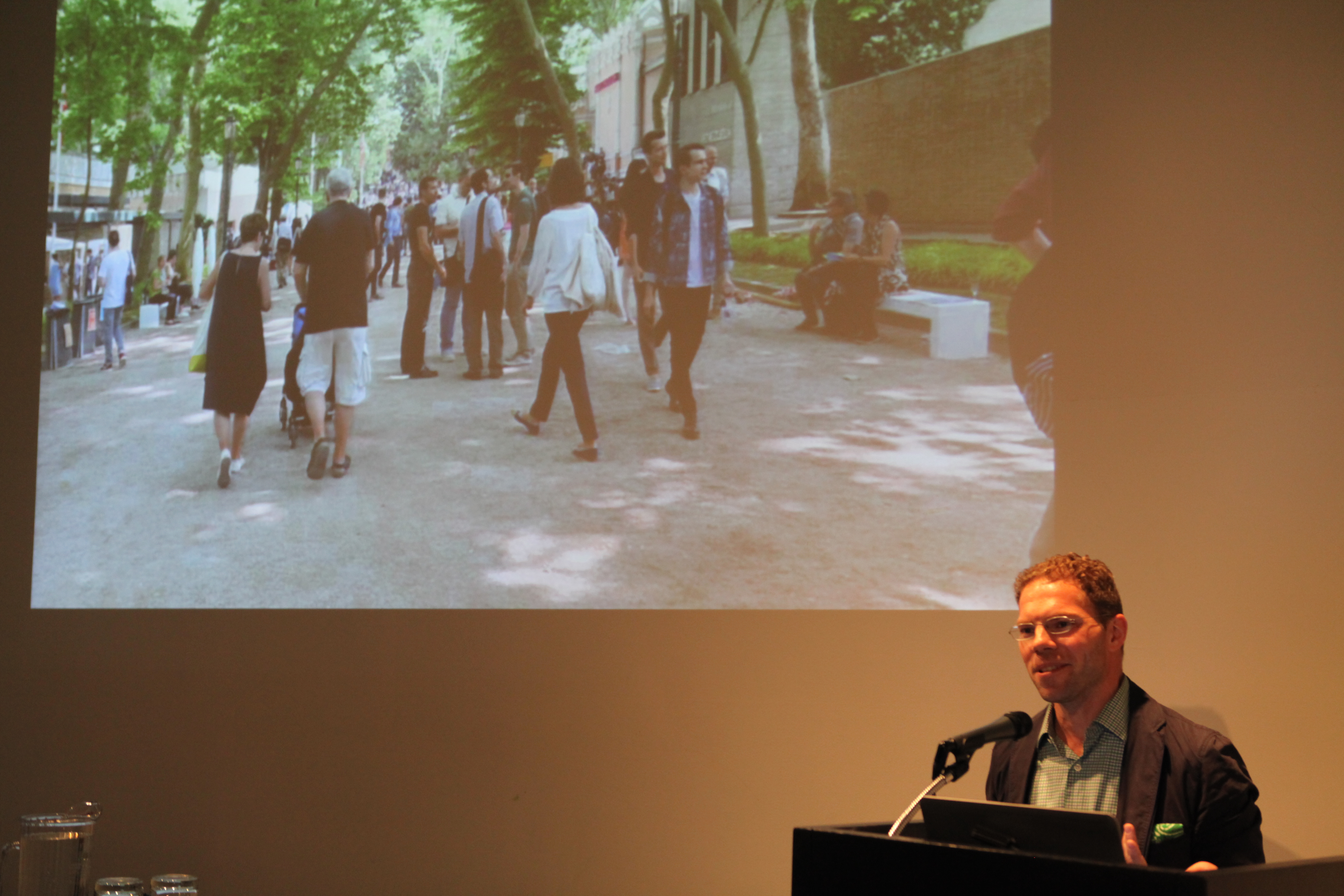by: James Way
What is a global conversation, and how does technology and social media impact it? That question, asked of panelists at the “Viral Voices III: Globalization” program, launched author and Fast Company journalist Greg Lindsay into his observations during his travels from the Venice Biennale to NeoCon. Lindsay sees architecture and urbanism being rethought during a time when there isn’t a lot of building going on. Developers of a 500-hectare site in Manila refused architectural candidates, demanding instead a master planner – a program rather than a rendering. At the other end of the spectrum, office designers are examining the role of furniture, especially hot-desking, but nobody is asking how we work and what unassigned workspaces mean. He predicts that “in the future everything will be a coffee shop.” These types of spaces have comfort, the cloud, and interesting activity.
Technology has been redefining our conception of space. It has made meetings asynchronous and erased the need for constant face-to-face time. Transportation routes are mapping urban space where no formal system exists, as in Nairobi’s bus lines. And, portable apps create social space. Lindsay noted that Tinder finds a date, Uber gets a ride, and Airbnb locates a room: “We no longer build; we simply carve out space.” Mark Collins of Cloud Lab reinforced this relation to portable technology as a “new experience based on location – biofeedback.”
Applying this technology to architecture provides a platform for disseminating and archiving work. David Basulto and David Assael introduced their website ArchDaily, which, since launching eight years ago in Chile, has spread to Brazil, Mexico, China, and every architect’s desktop or smartphone. Dichotomously, launched as a platform for local architects, ArchDaily archives portfolios from around the world because “location is not a problem anymore,” Basulto said.
Such broadcast may homogenize locales with a new international style, as the “two Davids” of ArchDaily acknowledged. Panelists bounced between the two themes of location and technology, ultimately wanting to return power, or at least presence, to the local. This left MIT Architecture’s Rafi Segal wondering: “Why is there a global discussion? Is anyone interested?” He called the milieu of social media a multiplicity of locales where there are “fast visions, not solutions.” Kyle May, editor of Clog, countered that his publication slows things down to focus numerous authors on a single topic to create “a terrain, not a flattening.”
Two telecommuters focused on journalism. The Wall Street Journal‘s Diana Jou highlighted the paper’s ability for deep investigative journalism in researching Hong Kong’s Forbidden City for a comprehensive story about its former residents and economies, compared to single-blogger websites without the same resources. Jaime Derringer of Design Milk concurred but distinguished between knowledge and content, noting that “most sites are not .edu – many articles are junky SEO [search engine optimization] posts.” Derringer further challenged that in a cacophonous web of voices, writers need to “find interest or not publish.”
As with any social media, many voices can be too many. The panelists only scratched the surface with more questions. I’m sure the blogosphere has taken up the debate that was fomenting when the program ended.
James Way, Assoc. AIA, Marketing Manager at Dattner Architects, frequently contributes to e-Oculus.
Event: Viral Voices III: Globalization
Location: Center for Architecture, 07.14.14
Speakers: Greg Lindsay, Fast Company – NYC; David Basulto and David Assael, ArchDaily – Chile; Robyn Peterson, Mashable – NYC; Jaime Derringer, Design Milk – San Diego via Skype; Diana Jou, Wall Street Journal – Hong Kong via Skype; Rafi Segal, MIT Architecture / Architect/Blogger – NYC and Tel-Aviv; Mark Collins, Cloud Lab | Morpholio Project – NYC; Kyle May, Clog – NYC; and Sammy Medina, Metropolis magazine (moderator)
Organizers: AIANY Global Dialogues Committee
Sponsors: Langan, HOK, KPF (Sponsors), and American Standard (Supporter)










